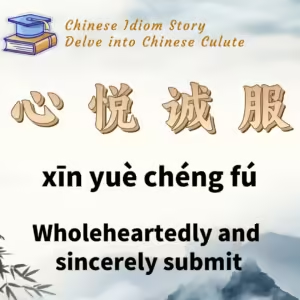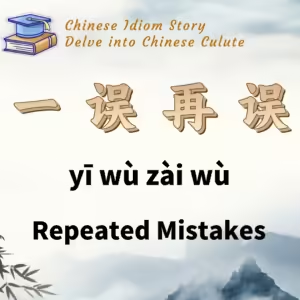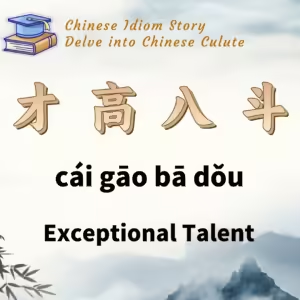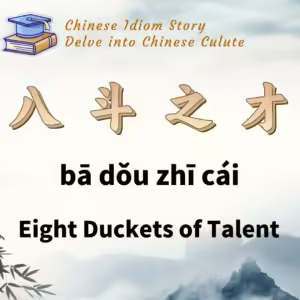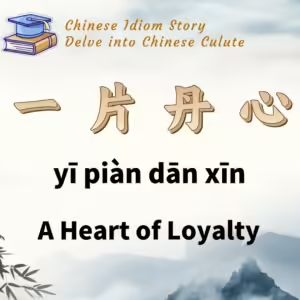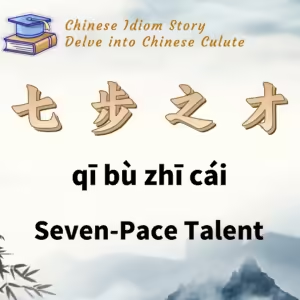
Chinese Idiom: 七步之才 (Qi Bu Zhi Cai)
English Translation: Seven-Pace Talent
pīn yīn: qī bù zhī cái
Idiom Meaning: This idiom is used to describe someone who is wholeheartedly loyal and dedicated to their country or cause.
Historical Source: Records of the Scholars of the Wei Dynasty · Literature.
Idiom Story: During the late Han Dynasty, Cao Pi, the second son of Cao Cao, usurped the throne from Emperor Xian of Han and declared himself Emperor Wen of Wei, founding the Wei state in the Three Kingdoms period. Cao Pi’s younger brother, Cao Zhi (the fourth son of Cao Cao), was known for his remarkable literary talent. Even in his early teens, Cao Zhi could compose poetry and essays, earning the admiration of his father, Cao Cao.
However, Cao Pi, feeling envious of Cao Zhi’s talent, sought to undermine him after becoming emperor. One day, Cao Pi challenged Cao Zhi: “I’ve heard of your quick wit. Now, I want you to compose a poem within seven paces. If you fail, I will accuse you of deceit.”
Cao Zhi, though under pressure, accepted the challenge. As he walked seven paces, he composed the following poem:
煮豆燃豆萁,漉豉以为汁。 其在釜下燃,豆在釜中泣; 本是同根生,相煎何太急?
“Boiling beans on bean stalks, making sauce from the beans.
The stalks are burning under the pot, and the beans cry within.
We are of the same root, why should we rush to harm each other?”
In this poem, Cao Zhi uses the imagery of beans and their stalks to symbolize brothers from the same family who, despite their shared origin, cause each other harm. The lines “We are of the same root, why should we rush to harm each other?” reflect Cao Zhi’s poignant rebuke and plea for harmony with Cao Pi.
Upon hearing the poem, Cao Pi was deeply moved and felt remorseful for his actions. The idiom “Seven-Pace Talent” thus came to symbolize someone with exceptional literary skill and the ability to produce brilliant work quickly.

